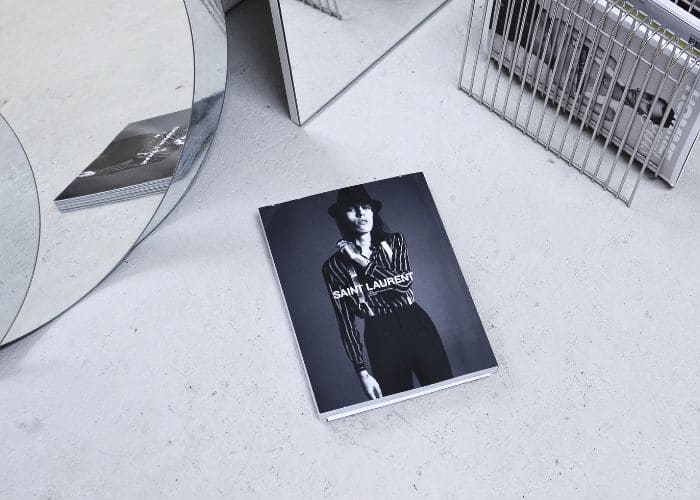In recent years, minimalist fashion has emerged as a dominant trend capturing hearts and closets worldwide. With its stripped-down aesthetic, clean lines, and focus on simplicity, the minimalist style has captivated both fashion enthusiasts and practical minimalists seeking a more streamlined approach to dressing.
As society seeks to escape the culture of excessive consumption and embrace a more mindful lifestyle, minimalism in fashion has become more than just a stylistic preference but a movement towards essence, functionality, and quality.
Understanding the influences behind the minimalist style is crucial to appreciating its evolution and relevance in contemporary fashion. From the roots of minimalism in art and architecture to the rise of brands and personalities that embraced this style, there is a rich and complex history that has shaped what we know today as minimalist fashion.
By comprehending these influences, we can not only appreciate the minimalist aesthetic but also understand its deeper meaning and cultural relevance. In this exploration of the influences behind the minimalist style, we will delve into the origins of this movement, examine the brands and personalities that defined it, and reflect on its importance in a world increasingly oriented towards simplicity and authenticity.
Origins of Minimalist Fashion
Minimalist fashion, with its simplified elegance and focus on functionality, has roots deeply intertwined with the 20th-century artistic movement. Originating in the 60s and 70s, this style of fashion echoed the minimalist principles found in the art, architecture, and design of the era.
The rejection of excess and ostentation characterized the early steps of this movement, with designers like Coco Chanel and Yves Saint Laurent simplifying silhouettes and reducing details to create a clean and stripped-down aesthetic.
The fundamental principles of minimalism in fashion are rooted in the idea that less is more. Simplicity is key, with an emphasis on the quality of materials and precision of cut.
The color palette tends to be neutral and sober, highlighting the form and structure of the pieces instead of patterns or ornaments. This approach, focused on the essence and purity of form, gained popularity not only for its timeless aesthetic but also for its practicality and versatility in the modern wardrobe.
Exploring the origins of minimalist fashion, it is important to recognize the influence of artistic movements such as minimalism and constructivism, which valued simplicity, geometry, and functionality.
These influences manifested in fashion through simplified designs, clean lines, and an uncomplicated approach to dressing. Minimalist fashion not only reflects a simplified lifestyle but also a philosophy of detachment from the superfluous and focus on the essential.
Brands That Defined the Minimalist Style
The rise of minimalist fashion was profoundly influenced by a select group of brands that embraced and promoted the principles of this authentic style. Among these brands, the Japanese Uniqlo stands out as a true pioneer of accessible minimalism. With its basic and functional pieces, Uniqlo found a perfect balance between simplicity and quality, becoming a popular choice for those seeking a minimalist style and versatile wardrobe.
Another brand that left a significant mark on the minimalist fashion scene is the Swedish COS (Collection of Style). Known for its elegant and minimalist approach, COS offers pieces that are both sophisticated and accessible. Their clean and contemporary designs capture the essence of the minimalist style, providing consumers with a way to express their personal aesthetics in a discreet and refined manner.
Additionally, the American brand Everlane has been acclaimed for its transparency and commitment to sustainability, values that resonate deeply with minimalism adherents. With a range of products from basic clothing to accessories and footwear, Everlane has garnered a customer base that appreciates its simple and mindful approach to fashion.
Analyzing the impact of these brands on the fashion scene, it becomes evident that they not only defined the minimalist style but also shaped how consumers worldwide perceive and embrace fashion. Their timeless designs and brand philosophies resonate with a generation that values quality over quantity and simplicity over excess, solidifying their place as leaders in the world of minimalist fashion.
Personalities That Influenced the Minimalist Style
In the fashion world, iconic personalities played a crucial role in promoting and popularizing the minimalist style. One notable figure is Steve Jobs, co-founder of Apple. Known for his consistent and minimalist wardrobe, Jobs personified simplicity and functionality both in his technological creations and his personal style, becoming a digital era icon of minimalism.
Another personality who left a mark on the minimalist style is French fashion designer Coco Chanel. Famous for her elegant and timeless creations, Chanel revolutionized fashion by simplifying silhouettes and introducing basic pieces that prioritized comfort and practicality. Her legacy continues to influence fashion today, with many designers following her example of discreet elegance.
Additionally, architect and interior designer Mies van der Rohe is widely recognized for his minimalist approach to architecture and design. His motto “Less is more” perfectly encapsulates the principles of minimalism, and his influence can be seen in iconic buildings worldwide. Van der Rohe exemplifies how minimalism can transcend fashion and influence various design areas.
Examining these influencers who personified the minimalist style, it becomes evident that their influence extends beyond the fashion world. Their style choices and design approaches resonate with an aesthetic that values simplicity, elegance, and functionality, shaping not only how we dress but also how we live and create.
Debate on the Greatest Influence
Discussing which brand or person had the greatest impact on the development of the minimalist style sparks a fascinating debate encompassing a wide range of perspectives and arguments.
A prevailing view points to the influence of fashion brands, with companies like Uniqlo, COS, and Everlane leading the way in popularizing accessible minimalism. These brands not only offer accessible minimalist designs but also promote a philosophy of conscious and sustainable consumption, highlighting their role in the minimalist movement.
On the other hand, many argue that influential personalities played an equally important role in defining the minimalist style. Figures like Steve Jobs, with his minimalist lifestyle and simple approach to design, are cited as examples of how individuals can embody minimalism in their lives and influence popular culture. Additionally, designers like Coco Chanel and architects like Mies van der Rohe left a lasting legacy that transcends fashion and influences various design areas.
It is also important to consider the intersection between brands and personalities in shaping the minimalist style. For example, the collaboration between renowned designers and fashion brands can result in collections that perfectly encapsulate the principles of minimalism, while influential personalities often associate with brands to promote a minimalist lifestyle. Therefore, the debate on the greatest influence on the minimalist style is complex and multifaceted, requiring careful analysis of all relevant contributions.
Conclusion
Brands like Uniqlo, COS, and Everlane, along with figures like Steve Jobs, Coco Chanel, and Mies van der Rohe, have emerged as key references in the development and promotion of minimalism in fashion. Their simplified designs, more conscious lifestyle philosophies, and different and basic personal styles have shaped not only how we dress but also how we perceive fashion as a whole.
It becomes clear that the minimalist style is a product of diverse influences and collaborations. From accessible fashion brands to visionary personalities, each played a unique and significant role in the evolution of minimalism in fashion. Recognizing and understanding these influences is essential to fully appreciate the depth and richness of this unique and timeless fashion style.
Additionally, it is important to reflect on the importance of minimalism not just as a passing trend but as a lasting movement towards simplicity, functionality, and mindfulness. By embracing the principles of minimalism in fashion, we not only express our personal style but also promote a more conscious and sustainable way of life.
Therefore, as we conclude this exploration of the influences behind the minimalist style, we are reminded of its timelessness and relevance in the fashion world and beyond.
So may we continue to be inspired by the brands and influencers who have shaped this unique and casual style while striving to simplify our lives and express our true essence through minimalist fashion.








